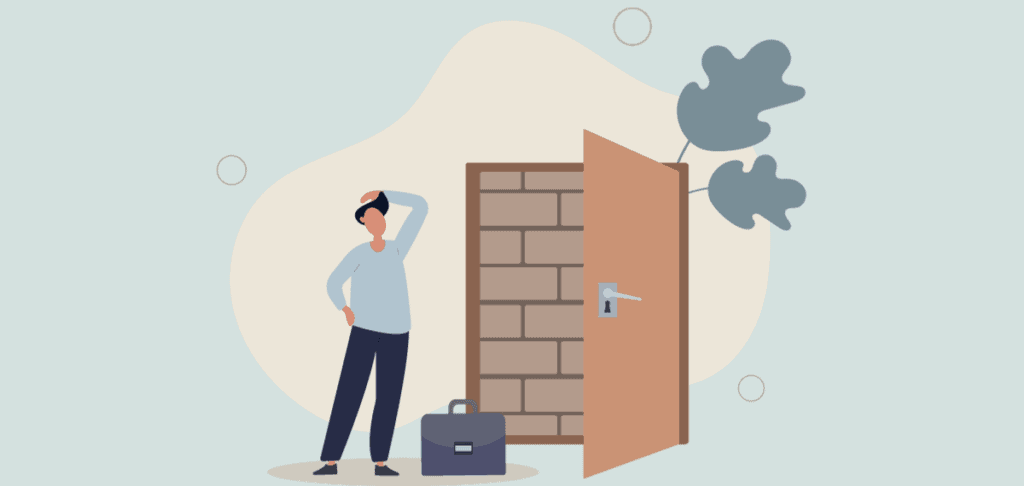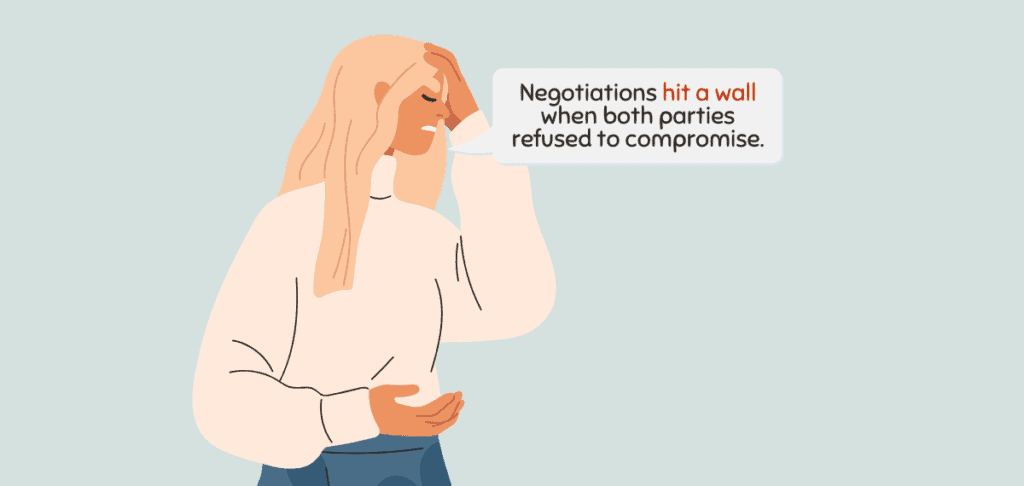Hit a brick wall and hit a wall both mean to face a challenge or obstacle that’s impossible to beat. However, hit a wall is more general and could imply mental, emotional, or physical barriers that might have a solution. On the other hand, hit a brick wall emphasizes the impenetrability of the situation and is a bit more solid in its intent.
An example of hitting a wall would be studying for hours and suddenly losing concentration because you’re tired. But hitting a brick wall would be studying for hours only to realize you do not understand the material and might need a tutor.
Idioms like these are sayings that don’t have a literal meaning but are used to convey deeper thoughts and emotions. They add flavor to our language and help us colorfully express ideas.
Read on to learn the meaning and origin story of hit a brick wall and how to use it in a sentence with a few examples.
Hit a Wall and Hit a Brick Wall Idiom Meaning

Both “hit a brick wall” and “hit a wall” are idioms that depict the experience of encountering a significant challenge or obstacle that feels impossible to surpass. While they share similar meanings, their usages can sometimes emphasize different situations.
To hit a brick wall, imagine you’re working on a project at work for months, and suddenly, a key stakeholder changes their mind, making further progress impossible. You’ve essentially “hit a brick wall.”
To hit a wall, picture yourself running a marathon. At mile 20, you suddenly feel exhausted and can’t imagine continuing. You’ve “hit a wall” in terms of your stamina.
Hitting a Wall and Hit a Brick Wall Origin and Etymology

The exact origin of the idiom “hit a brick wall” is unclear, but the concept of a brick or stone wall as a formidable, unyielding barrier has been around for centuries. This tangible idea of a solid obstruction eventually took on metaphorical nuances, representing emotional or intricate challenges.
On the other hand, “hitting a wall” often resonates with endurance sports. Some athletes are so fatigued they must stop their activities. However, some may push themselves when they hit the wall until they gain a second wind and find the strength to finish. The term hit the wall gained popularity in the 1960s–1970s when jogging became an American pastime, and the phenomenon became more commonly known.
Hit a Brick Wall Synonyms
- Reach a standstill
- Come to a dead end
- Make no headway
- Be at an impasse
- Run into a roadblock
Examples Using Hit a Brick Wall and Hit a Wall in a Sentence

- Every time I try to master this song on my guitar, I feel like I’ve hit a brick wall.
- Negotiations hit a wall when both parties refused to compromise.
- After three hours of debate, the committee hit a brick wall, and the strike continued.
- The project went smoothly until we hit a wall with unexpected technical issues.
- After studying for hours, I hit a wall and couldn’t absorb any more information.
- I won’t give up on the book, even if I feel like I’ve hit a brick wall with this idea.
- Our community garden project hit a brick wall when our main sponsor pulled out.
- During the marathon, I hit a wall at the 20-mile mark and struggled to finish the race.
Find a Way Through It
Whether you feel you’ve hit a brick wall or hit a wall, it’s a vivid way to express facing challenges. But remember, walls can be scaled, demolished, or even sidestepped. Just like mastering idioms and grammar, persistence is key. We’ll help you over those brick walls with our helpful guides!
Check out some others we covered:
